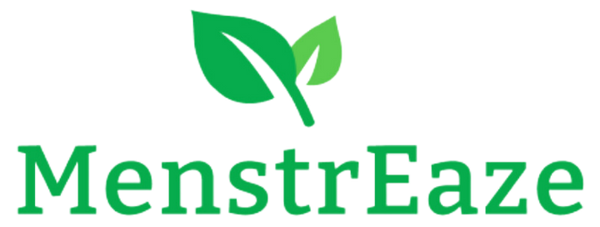Understanding Proposition 65 and Our Supplement Labels
What is Proposition 65?
Proposition 65, or the Safe Drinking Water and Toxic Enforcement Act of 1986, mandates that California businesses inform residents about significant exposures to chemicals that could cause cancer, birth defects, or other reproductive harm. This law empowers consumers to make informed decisions about their exposures to these chemicals.
Defining Proposition 65's Role
Prop 65 has become a pivotal law in addressing potential risks associated with chemicals. It's crucial to understand that a Prop 65 warning does not imply a definitive risk of cancer, birth defects, or reproductive harm. Instead, the law operates under a "no observable effect level" (NOEL) which determines how much of each chemical can be present in a daily serving without requiring a warning. This threshold is set conservatively, aiming to prevent any harm by allowing 1,000 times less than the amount shown to have no effects in humans or animals.
For example, in the case of listed reproductive toxicants, the warning threshold is 1000 times lower than the level found to cause no reproductive harm. In other words, if animal studies predict that a human could eat up to 1000 grams per day of a substance without any reproductive effect, Prop 65 would be a require a warning on a food that contains 1 gram or more of the substance in a daily serving. This is further illustrated in the figure below.

American Herbal Products Association: California Prop 65 FAQ
With respect to lead, the Canadian government indicates that since 2004, the most significant dietary sources are beverages (including beer, wine, coffee, tea, and sodas), cereal-based foods, and vegetables. The U.S. Food and Drug Administration provides information about the content of lead and other contaminants in various foods in its Total Diet Study database. The chart below presents information about the average lead levels in various foods from FDA's Total Diet Survey during 2005-2011 as compared to the Prop 65 trigger level for reproductive harm.

American Herbal Products Association: California Prop 65 FAQ
How Proposition 65 Safety Standards Are Determined
Prop 65 standards are notably stringent, requiring warnings for substances where the exposure could result in no more than one excess case of cancer in 1 million individuals over a 70-year lifespan. This precautionary approach has prompted debate among entities like the American Cancer Society and various scientific experts who argue that the criteria for adding chemicals to the list may be overly conservative.
Why Our Supplements Carry a Proposition 65 Warning
Our supplements contain essential minerals and vitamins naturally sourced from the earth, such as magnesium and calcium. Despite rigorous purification processes, trace elements like lead, naturally present in the environment, might remain. Under Prop 65, warnings are mandated for even minute levels of these elements, which are significantly lower than federal safety thresholds.
Our Commitment to Quality
Unlike some companies that might reduce the nutrient content in their products to circumvent Prop 65 warnings, we prioritize your health and well-being. We adhere to California's stringent labeling requirements to maintain the quality and effectiveness of our supplements without compromising their health benefits.
Safety of Products with Proposition 65 Warnings
Yes, our products with Proposition 65 warnings are safe. The presence of a warning label does not imply violation of safety standards. The criteria for these warnings are far stricter than those set by federal agencies like the FDA, ensuring our products are not only compliant but also maintain high safety standards.
How Does Proposition 65 Affect You?
A Proposition 65 warning on a product serves as a precaution, informing you of the potential presence of listed chemicals, though these are often in amounts substantially lower than what is considered harmful by federal standards.
The Prevalence of Proposition 65 Warnings
With ongoing research and reevaluation of chemicals, Proposition 65 warnings have become more common across a range of products nationwide, reflecting a growing awareness and caution regarding chemical exposures.
Examples of Foods Labeled Under Proposition 65
Proposition 65 warnings may appear on various foods, including:
- Seafood: High mercury levels in certain fish.
- Leafy Greens and Vegetables: Potential absorption of lead and cadmium from soil.
- Root Vegetables: Susceptibility to absorb soil contaminants like heavy metals.
- Rice and Rice-Based Products: Tendency to absorb arsenic from soil and water.
- Processed Foods: Formation of acrylamide during high-temperature cooking.
- Canned Goods: Use of BPA in can linings.
Are Foods with Proposition 65 Warnings Safe to Eat?
Yes. The warnings aim to inform consumers rather than to suggest inherent unsafety. The levels requiring warnings are much lower than federal safety guidelines, allowing these foods to be part of a balanced diet.
Conclusion
Proposition 65 warnings foster transparency and informed choices, enhancing consumer protection without necessarily indicating direct risk. At MenstrEaze, we are committed to delivering high-quality, safe products that meet rigorous standards. This FAQ is designed to address any concerns you may have regarding Proposition 65 and the safety of our products, ensuring you remain well-informed about your choices.
References
- American Herbal Products Association: California Prop 65 FAQ
- State of California’s Office of Environmental Health Hazard Assessment (OEHHA)
- U.S. Agency for Toxic Substances and Disease Registry
- U.S. Food and Drug Administration recommendations regarding mercury in seafood
- U.S. Environmental Protection Agency information regarding mercury and fish
- State of California recommendations regarding chemicals in fish
- EPA data on maximum contaminant levels in drinking water
- Study on the cancer-causing potential of chlorinated water and chlorination by-products


MenstrEaze® Cloud Lab
MenstrEaze® Cloud Lab is a research engine that summarizes intervention-outcome relationships from millions of clinical trials/RCTs, presenting the findings in a searchable and easily interpretable format for professionals and interested individuals.

Want to Try Natural Relief?
MenstrEaze's featured supplements offer a diverse range of products tailored for women across different age groups. They serve as a foundation for optimal nutrient intake, potentially alleviating pain, stress, hormonal imbalances, mood swings, gut health issues, and other discomforts associated with the menstrual cycle and the transition to menopause.

Explore Health Blogs?
Explore a vast collection of articles designed to empower you with knowledge—from understanding the basics of the menstrual cycle to exploring common wellness support strategies.



